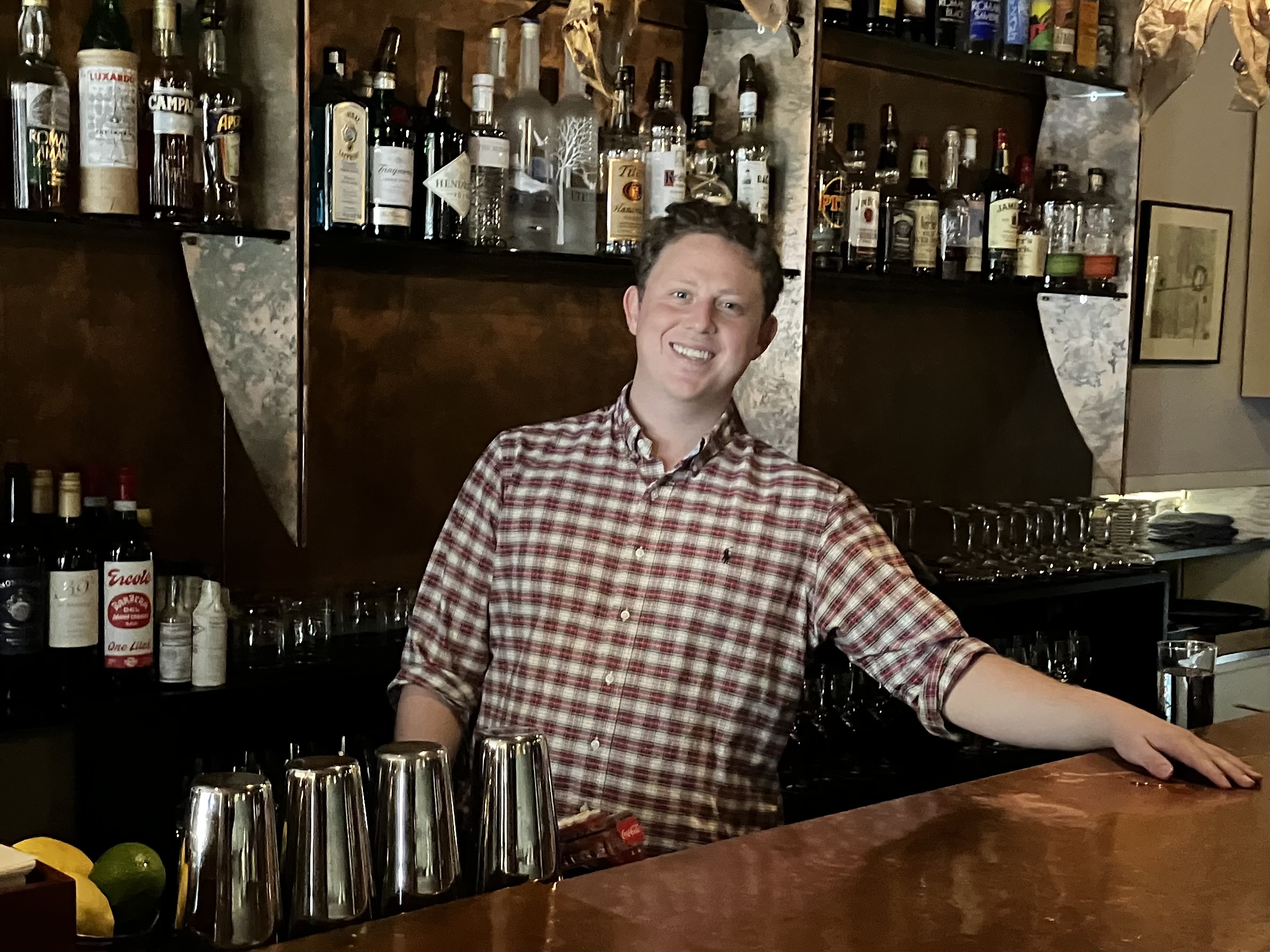There are 26.1 million posts on Instagram alone with the hashtag #filmisnotdead, and Jordan Enger of Basement Lab is doing his part to keep it alive and thriving in Southwest Minneapolis near 26th Street and Lyndale Avenue. Tucked into the back of Disco Death Records and Coffee Shop, the space is a haven for those who love dead media. In fact, Joel Eckerson and Colin Wilkinson, creators of the beloved Dead Media Records in the Corcoran neighborhood before COVID-19 closed its doors for good, are the co-owners of the space where Basement Lab is located.
Together, the three create a haven for analog media and great coffee. Eckerson and Wilkinson run the record store, while Enger and Wilkinson run the coffee shop. Enger alone runs the film development and processing of Basement Lab. The walls are lined with records for sale, baristas brew creative lattes with their signature espresso blend from Misfit Coffee Co., and tunes float in from the speakers. It’s a dreamy space to browse for new vinyl, work remotely, or meet up with a friend for a coffee. With two of the three owners having a background in bartending, the coffee shop looks a little like a fancy place to grab a drink. Crumbly cubes of dark sugar in gilded glasses, bitters, tinctures, dehydrated fruit, and house-made syrups and horchata elevate their setup and decorate the coffee bar. It’s a refreshing way to kick off getting film developed as visitors journey to the back of the store where Basement Lab resides.
“That's where I had space to do it,” Enger said. “I'm taking this long rectangle and trying to figure out how I can make this a coffee shop, record store, film lab, and fit all of this stuff into one tiny space and have it be like a bar service.”
Enger is not a photography processing gatekeeper. His processing space sits behind a door that’s usually open, revealing chemicals and equipment. He was influenced by photographer Ansel Adams’ ability to create opportunities for education for others. In his rapid-fire cadence, Enger does the same by cultivating a welcoming space at Basement Lab for people to ask questions and receive a no-attitude answer.

Enger has machines sitting out in the open area where he greets customers and helps them select their processing preferences. In fact, during our interview, the open concept of the space had one visitor thinking the intake area was a museum, and it’s easy to understand why. The machines he uses look old because they are. Enger–a self-proclaimed tinkerer–rebuilt them by hand.
Enger likes to continually learn and keep busy. Even as I interviewed him, he moved around the room above the shop and preferred to pace around the room rather than sit. That restless desire for movement led him to St. Cloud State University to get his pilot’s license as a teenager. That same energy got him interested in snowboarding, which began his love affair with film. His curious and capable mind then drew him to find ways of processing his film of snowboarding shoots. He explored using expired film and processing it commercially, then delved into getting his own color and black-and-white processing chemicals.

The do-it-yourself and sustainability ethos are top of mind for Enger and Basement Lab. He initially taught himself how to process the film he shot of wedding photography. He established a professional setup in the basement of a home he shared with friends in St. Louis Park, which inspired his business name. Today, inside Disco Death, he creates his own scratch-made chemistry for processing black and white film and tries his best to mitigate some of the environmental issues of processing film.
“I'm extremely passionate about trying to reduce as much waste as I can in this,” Enger said. “We're using chemicals. There's a lot of plastic celluloid films in general. There's a lot that goes into it that is bad for the environment, but it's one of those things that I love to do and I got to find ways to make it somewhat sustainable in all transparency,” says Enger.
This means offering digital-only scans instead of the old-school “print ‘em all” method – although he does partner with local print shop White House Custom Colour out of Eagan. Many people prefer to simply download the image files Enger sends in a clean, online gallery-style format, but the collaboration with White House provides an option for customers to have access to high-quality prints of their photos.
Enger also buys blank film in bulk and reloads it it into recycled cassettes for purchase. He also re-spools customers’ negatives into their original canister, which protects them and cuts down on single-use waste.

To make things more accessible, his website recently got a makeover with more plain language to explain the film processing options. There are now two levels for selecting film processing: “Easy” features finishing services of “Do It Good,” “Do It Better,” or the premium option, “Make It Sexy,” or “Advanced” for the deep film nerds to select all of their favorite options like format, cross processing, and adjusting for contrast.
People can drop off their film at Disco Death from 10 a.m. - 5 p.m. daily, or they can mail it in. In the future, Enger wants to improve accessibility by setting up vending machines outside of the Twin Cities where folks can purchase cost-effective film and return it for processing in an attached drop box.
“I'm trying to make it accessible. I'm trying to create a good experience when you come in here. That focus is on not gatekeeping and having the passion for doing this thing, building relationships,” Enger said. “I try to do that with as high a quality as I possibly can.”
A tinkerer with a curious mind, a pilot, and a film nerd walk into a coffee bar. That might sound like the beginning of a joke, but it’s just Enger on a regular day in the office. With all of his drive, passion for his work, and enthusiasm for the medium, he is actively creating more opportunities for people to explore the magic of film – helping ensure it stays alive and well in Minneapolis.

.jpg)







